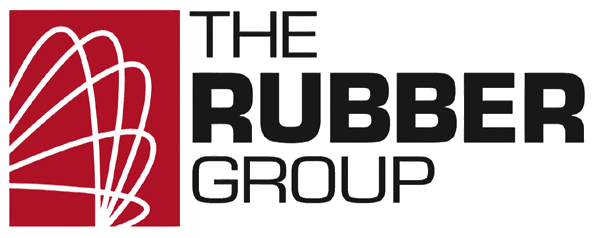FKM shortages are making it harder for some rubber molders to produce parts like seals, gaskets, O-rings, and hoses for high-performance applications. At The Rubber Group, we’re working to prevent supply chain interruptions by validating base materials from multiple sources. Some of the major suppliers we work with are 3M, Chemours, Solvay, and Daiken. By supporting multiple base materials for FKM elastomers, we’re mitigating risk both for our business and yours.
What is FKM?
FKM is a family of fluorocarbon-based fluoroelastomers defined by ASTM D1418, a standard from ASTM International. These highly fluorinated polymers provide both high-temperature and chemical resistance, which makes them a good choice for applications in the automotive, aerospace, energy, medical, oil and gas, and semiconductor industries.
FKM elastomers are also used under conditions where parts are subjected to intense temperature and pressure changes; however, you must be careful when specifying FKM for low temperatures. The more common grades of FKM are not a good choice for low-temperature applications. Ultra-low temperature FKM is available, but these materials are very expensive.
How is FKM made?
FKM production is a complex process that involves feedstocks, intermediates, and compounding. Feedstocks are ingredients that are used to produce intermediates, or precursors, for polymers like FKM and PVDF, a fluoridated plastic that’s used in lithium batteries. R142B feedstock is used to produce VF2 intermediate, which can then be used to produce either FKM or PVDF. Vanadium fluoride, or VF2, comes in various grades, including high-purity and ultra-high purity compositions.
Is demand for PVDF causing FKM shortages?
There isn’t a single reason for the FKM shortage, but demand for PVDF is certainly a major factor. Today, lithium batteries are used to power an increasing number of electronic devices, with applications ranging from healthcare equipment to LED flashlights to car remote controls. PVDF has significant advantages in terms of high voltage resistance, adhesion, and stability, so battery makers and electronics suppliers can’t just use another polymer.
Can’t polymer manufacturers just make more FKM?
For polymer manufacturers, the challenges begin with inadequate supplies of the R142B feedstock that’s used to make VF2 intermediate for both PVDF and FKM. China, the world’s largest producer of lithium batteries, is planning to bring more R142B production on-line, but not until late 2022 or 2023 – and barring any additional pandemic-related disruptions. Therefore, the solution to FKM shortages isn’t just about redirecting VF2 to increase FKM production. It involves using alternative base materials.
How can you ensure the quality of FKM then?
Whenever compounders use alternative ingredients, rubber molders need to validate the end-use elastomers to ensure that they still meet requirements for quality and performance. That’s especially important when compounders source base materials from multiple sources, such as 3M, Chemours, Solvay, and Daiken for FKM. At The Rubber Group, we want you to know that we’re carefully validating base materials from multiple sources so that we can minimize the effects of FKM shortages on your business. If we plan on validating a new base material for your compound, we will notify you and discuss the appropriate validation protocol.
